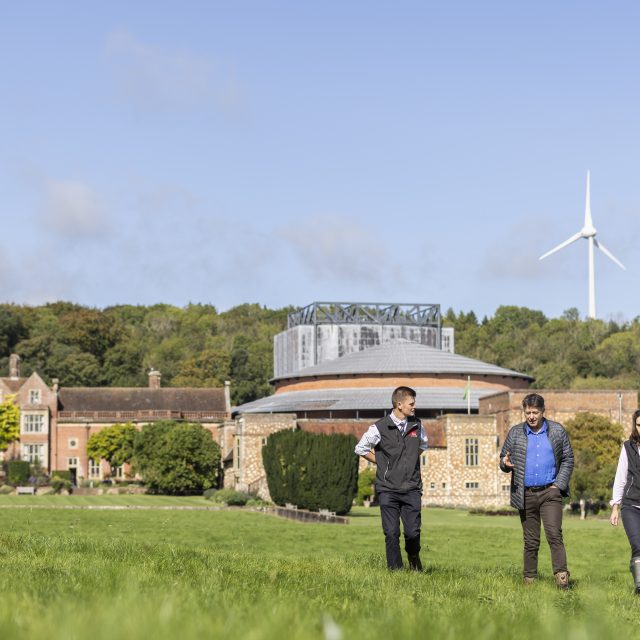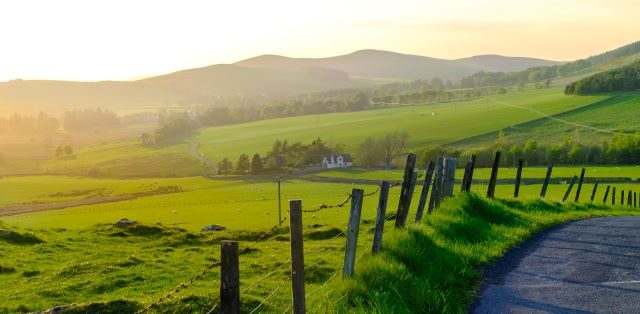4 reasons to carry out a farm carbon audit
Strutt & Parker’s recent Future of Farming survey, carried out jointly with the Country Land & Business Association, showed that less than a quarter of respondents had carried out a carbon audit of their farming business during the past three years.
The numbers are relatively low given a carbon audit is an important first step in establishing a baseline which will help with informed decision-making on possible changes to land management practices and long-term land use.
With lots of noise around the potential for farmers to sell soil carbon credits, an audit will also help farmers to understand how much carbon they are emitting as a business and estimate how much is being sequestered (locked-up) in the soils and plants. This will provide a guide as to whether they are likely to have a surplus that can be sold to third parties.
Carbon audit tools
There are a number of tools on offer to farming businesses to help measure carbon emissions and sequestration. The most important factor is to use widely accepted measuring practices and a consistent approach to measurement over time, so that changes can be properly monitored. Strutt & Parker uses Agrecalc as the predominant tool to produce farm carbon audits on behalf of clients. First developed by Scotland’s Rural College 15 years ago, it provides whole farm and individual enterprise results.
Guided by our team of Carbon Audit advisors, farmers are also able to benchmark their greenhouse gas emissions against groups or sub-groups of validated farm audits.
So why carry out a carbon audit?
There’s a combination of carrot and stick when it comes to why farmers should consider a farm carbon audit.
1. Net zero targets
On the regulatory side, the UK is required by law to bring all greenhouse gas emissions to net zero by 2050, which will inevitably make it increasingly important for landowners to show how they are taking action to reduce emissions and increase carbon sequestration. The NFU is actually aiming for net zero carbon emissions from agriculture by 2040.
2. Supply chain demands
Many food companies are also setting targets to achieve lower emissions for their products, and as part of that are looking for their farmer suppliers to reduce their carbon footprint. These companies include buyers of UK agricultural products such as Arla, Simpson’s Malt and Cargill.
They are aware that the only way a maltster – or any other commodity buyer – can produce a low carbon product is with the help of farmers. Businesses can cut their own emissions, for example, by switching to a renewable energy tariff and recycling water. However, the barley or milk they purchase comes with a carbon footprint and only the farmer can control that.
Many companies are currently offering incentives or premiums to encourage their suppliers to engage with the carbon audit process and to take actions to reduce their carbon footprint. The risk over the longer term is that buyers may decide they only want to deal with those farms which can prove their low carbon credentials.
3. Developing new income streams
One of the biggest carrots for a carbon audit is the potential to generate new revenues from the rapidly developing voluntary carbon market. Landowners and farmers are in a unique position to be able to capture/sequester carbon in their plants and soils. This provides them with an opportunity to sell any surplus carbon credits to companies which have reduced their greenhouse emissions as far as they can, but still need credits to become net zero.
4. Improving business efficiency
Another positive reason to carry out an audit is that the evidence points to the fact that taking steps to reduce emissions can be a good way of increasing business efficiency.
Farms with lower carbon footprints tend to be more efficient at using inputs to generate saleable product. The carbon audit process will help to identify carbon ‘hotspots’ on farm that can be the focus of attention to improve efficiency and reduce greenhouse gas emissions. Ultimately, this is better for the planet, profit and people.
If you would like to know more about our carbon audits, please contact a member of the Farming Team.






